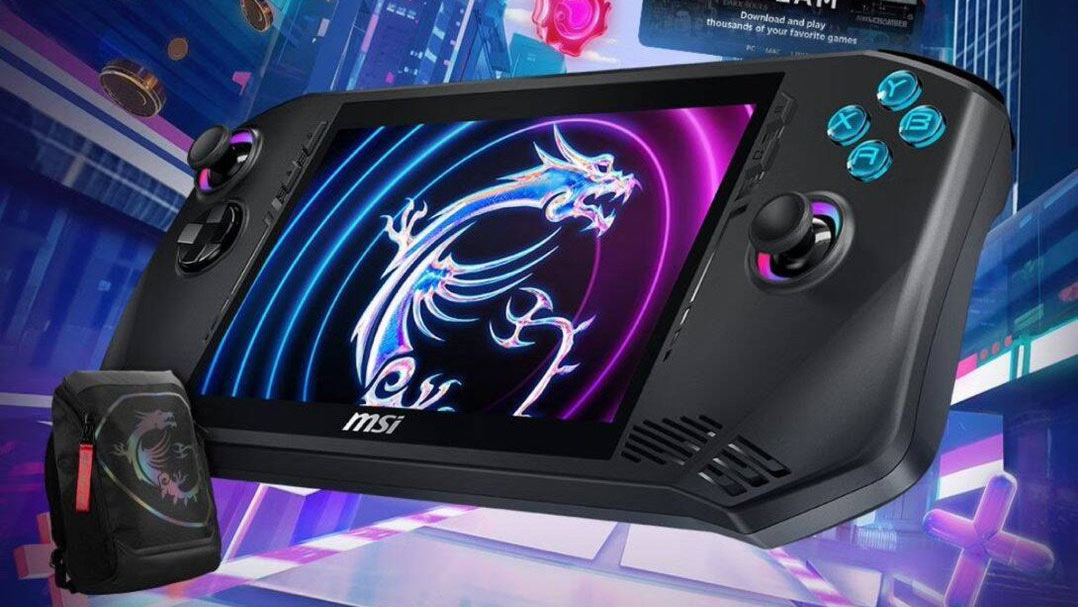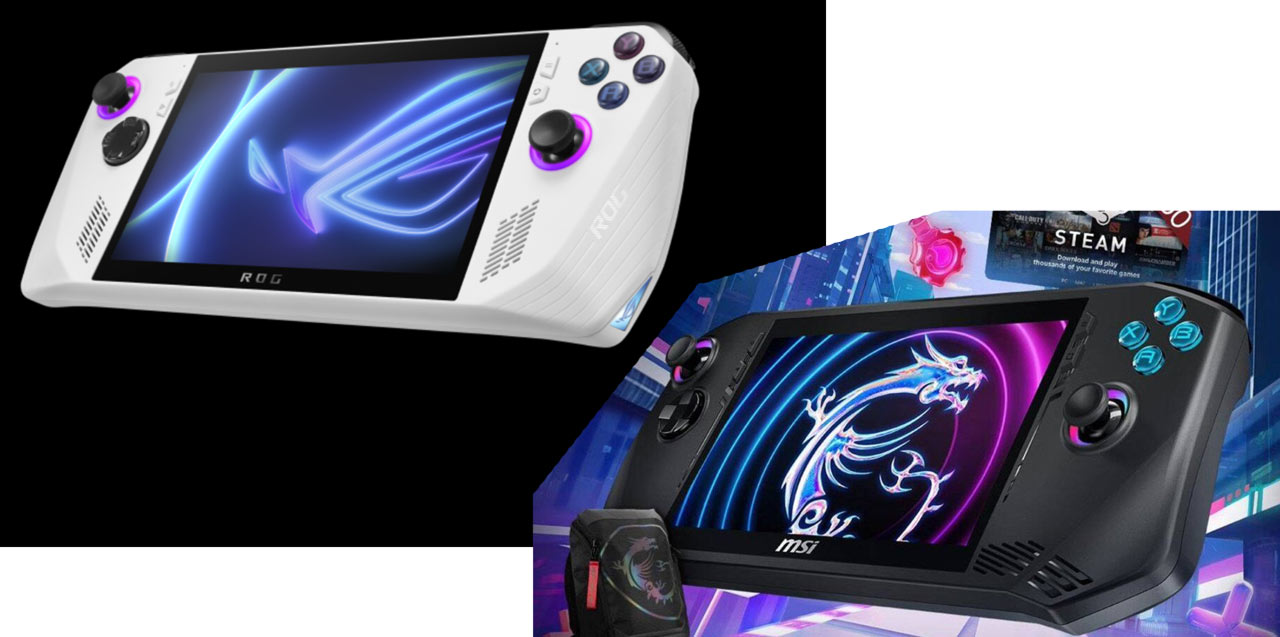
A promotional image showing an MSI-branded handheld gaming PC has appeared online via seasoned hardware leaker @wxnod. We also have a pair of pre-launch benchmark spills to mull over today showing variable performance for the Intel Core Ultra 7 155H (Meteor Lake) chip inside the MSI handheld, thanks to @Olrak29.
MSI teased its first foray into the burgeoning handheld PC gaming market yesterday, with some oblique close-ups of the device. The newly leaked picture, if genuine, shows that MSI’s handheld looks very similar to the Asus ROG Ally. The MSI Claw is scheduled for a full official reveal at CES 2024 next week.

In our comparison image, showing both handhelds from a similar offset angle, you can see that the Asus and MSI machines have more than a passing resemblance. The control layout, even down to the small buttons flanking the edges of the screen, is almost identical. Moreover, device ventilation and sculpting design choices look very similar.

Beauty is only skin deep, though, as we know these two handheld powerhouses are based upon very different SoCs. Asus uses the tried and trusted AMD Ryzen Z1 Extreme processor, which is a tuned Ryzen 7 7840U (Phoenix) APU. Meanwhile, MSI surprised us with its (not officially confirmed) choice of Intel Meteor Lake processor. Recently people have been pondering over the Phoenix vs Meteor Lake battle in the mobile arena, and what we have seen makes the probable choice by MSI not that surprising.
Purported MSI Claw benchmarks
Interestingly a pair of MSI Claw system benchmarks have appeared in the Geekbench online results database. The results seem to be taken from the same machine / model, designated the “Micro-Star International Co., Ltd. Claw A1M.” The two tests were run just 40 minutes or so apart, and perhaps it was done by the same user fiddling with settings and checking performance differences on a single machine.
The MSi Claw performance differences we can observe are quite significant between the two runs. Geekbench records that the Windows 11 ‘Balanced’ Power Plan was being used in both test runs, but we don’t know what else might have changed. One test could be from the MSI Claw when mains powered, the other from when it ran on battery, for example. Other system tweaks and changes may have been applied too.
To create the above comparison table we inserted the best and worst Asus ROG Ally single-core scoring samples tested over the last couple of days. The MSI results come from a sample of two, but the ROG Ally devices are the best / worst from a sample of about 25 devices.
We also found some Geekbench Compute results for the MSI Claw, with Vulkan scores of up to 37,165. This result also seemed to be one that wouldn’t be out of place among the multitude of recent ROG Ally Compute Vulkan API test results. 37K is at the higher end of the range of ROG Ally scores, though.
From the tests, if they are genuine, we should expect the MSI handheld to be a good challenger to the AMD Phoenix-powered throng. However, Geekbench tests aren’t great indicator of gaming performance, the primary purpose of these handheld devices. In other words, it would be best to wait and see if Meteor Lake handhelds have any winning qualities compared to the existing AMD Ryzen 7040 handhelds before putting in a pre-order, for example. Hold fire until third-party reviews are in from sites you can trust.







